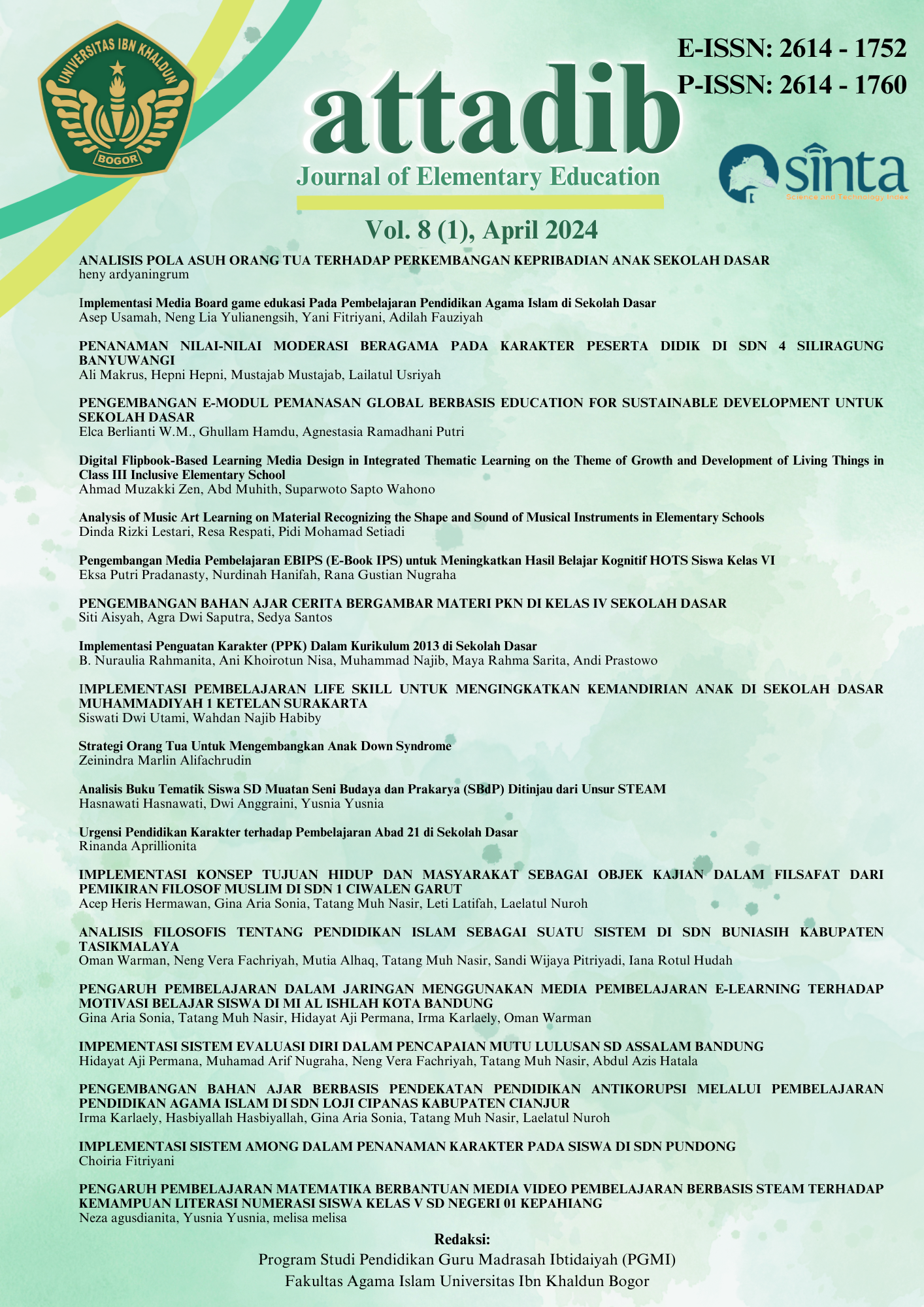PENGARUH PENDEKATAN KOOPERATIF TIPE ROLE PLAYING TERHADAP KETERAMPILAN BERBICARA SISWA PADA MATA PELAJARAN BAHASA INDONESIA
DOI:
https://doi.org/10.32832/at-tadib.v2i1.19370Abstract
The purpose of this research is to know the influence of Role Playing type co-operative approach to student learning outcomes in Indonesian language subjects of class V speaking skills of Islamic Integrated PrimarySchool Kaifa Bogor. This research is a type quantitative research with experimental method. This research was conducted at Islamic Integrated PrimarySchool Kaifa Bogor. The population in this research is the fourth grade students of Islamic Integrated PrimarySchool Kaifa Bogor consist of two classes namely class V A as control class and class V B as experiment class. The data were collected using pre-test and post-test method. Based on the available data, the average learning outcomes of students with cooperative approach type Role Playing on pre-test is 70.69 and the average of post-test result is 82,11 and the mean of student learning result in pre-test with conventional learning is 66.2 while the result of his post test test is 71.2. From testing the hypothesis and the average value of the two classes, it can be concluded that the learning by using cooperative approach type Role Playing concrete on has a significant effect on the learning outcomes of grade V students in Islamic Integrated PrimarySchool Kaifa Bogor
References
Arikunto, Suharsimi, 2013, Prosedur Penelitian Suatu Pendekatan Praktik. Jakarta : Rineka Cipta.
Huda, Miftahul, 2013, Model-model Pengajaran dan Pembelajaran, Yogyakarta: Pustaka Pelajar
Shaddhono & Selamet, 2013, Pelajaran Keterampilan Berbahasa Indonesia, Yogyakarta; Graha Ilmu.
Sugiyono,2009, Metode Penelitian Kuantitatif Kualitatif, Bandung; Alfabeta. Syukur,Ghazali, 2010, Pembelajaran Keterampilan Berbahasa,Bandung: Refika
Aditama.
Tarigan, 2008,Berbicara sebagai suatu keterampilan berbahasa, Bandung: Angkasa.
























